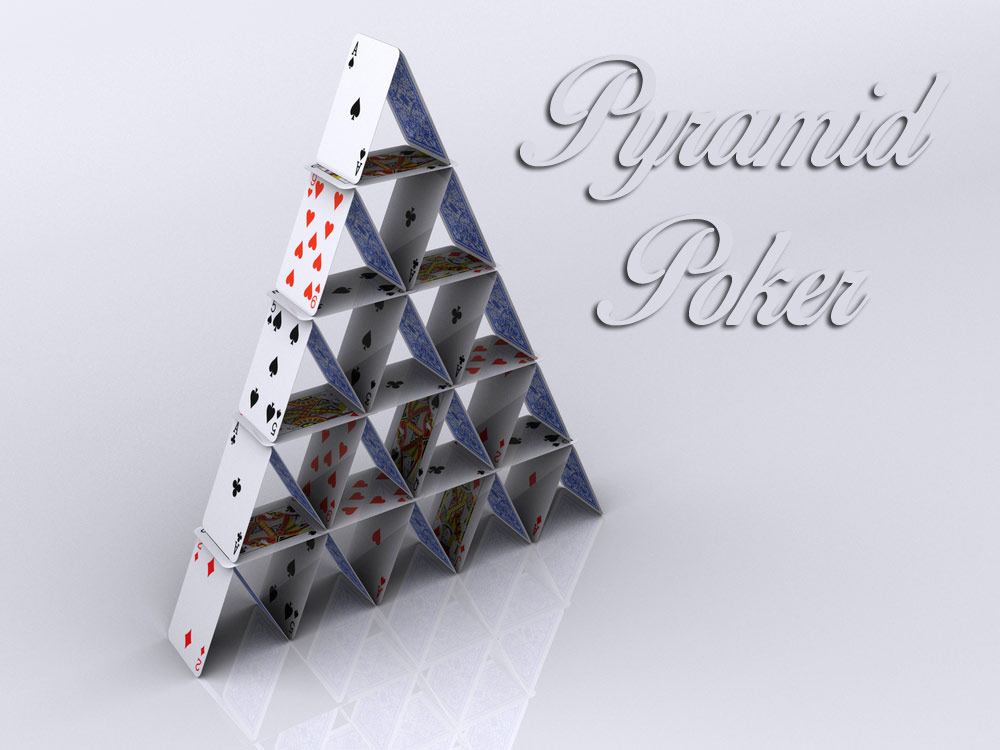What is Pyramid Poker? It is a simple version of pai gow poker that uses 54 cards. On one side, there are 52 of them that have a standard card deck distribution, and on the other side, there are two that have a pharaoh. The operator deals three cards face down instead of seven cards arranged in a two-card hand and one-card hand. Jokers are not used in this poker game, and the operator does not deal flushes or straights in the two-card hand. The hand rankings are similar to regular poker games only that the aces have a higher rank; the hand ranked higher wins both hands. Pyramid poker strategy states that a win occurs when both hands of the player exceed the operator’s hands. Thus, if only one hand has a high rank and the other loses, then the bet is a push or tie. The dealer wins if both hands have a higher ranking than the players.
Game Setup
Place the cards facing downwards and shuffle them. The dealer can allow the player on his right to cut the deck. He then deals three cards to all the players facing downwards and a pyramid of community is set up. The two-card hand should outrank the one-card hand just as in Pai gow Poker. The pyramid consists of four rows, face down and a single card at the top. The next row has two cards, the other has three cards, and the last row has four cards to make a pyramid of ten cards.
Pyramid poker is a high-low poker game where participants compete to win the best hand, i.e., the Royal Straight Flush. Every player uses a card from each row along with the three cards dealt to form the best hand. After all the cards are dealt, the player on the left starts off the betting round, and a pyramid of seven cards is formed. If playing online poker or from a casino, the game kicks off by letting the players make three bets (of different amounts) in three consistent positions on the table. Each bet should conform to the maximum and minimum limits of the table determined by the House.
The first of the three bets is made on the player’s three-card poker hand to beat the operator’s three-card hand. It is called the main bet. The second bet is an alternative bet on the player’s hand to qualify him for a payout that is based on the bonus paytable, and the third bet is another optional side bet made on the combination of six cards of the dealer’s and the player’s hand to qualify for a reward based on a separate bonus pay table.
Pyramid Poker Tips and Rules
Casinos provide information concerning the House Way and the rules the dealer should follow. For example, players holding the three unpaired cards should have the middle card placed on the operator’s one-card hand. When holding a pair of two(s) to eight(s), the player must place a pair on the dealer’s two-card hand. If the player obtains a pair of nine(s), it goes to the operator’s two-card hand as long as the single hand has six cards or higher. Alternatively, the pair can be split based on additional House Way rules.
When the cards are arranged, the dealer’s hand and that of the player are compared. A win occurs when the player’s two-card and one-card hands beat the operator’s hand on the main bet. If there is a push (one hand wins, and the other loses), the betting amount is returned to the player. If the operator wins both hands, the player will lose the bet.
Keep in mind that Pyramid poker has three bets, and the player strives to get a payout from all the stakes. A win on the second bet made on the player’s three-card hand occurs when a hand that has cards valued at 7 or lower receive a payout as a push, and the amount wagered returned. A pair pays out even money, and a straight pays out 5:1. A flush pays out 2:1 and three of a kind pay out 20:1. Also, a straight flush has a payout of 30:1 and a combination of A-K-Q is worth 50-to-1. Any other combination loses.
The third bet is made on a six-card combination of the dealer and the player. The player achieves even money when there are two pairs while three-of-a-kind pay out 2:1. A flush pays out 6:1 and a straight pays 5:1. A full house pays out 7-to-1, a straight flush is worth 75-to-1, and four-of-a-kind pays out 10-to-1. Online poker games that offer the multi-deck version of pyramid poker have payouts for six-of-a-kind at 1000-to-1 and five-of-a-kind at 50-to-1.
